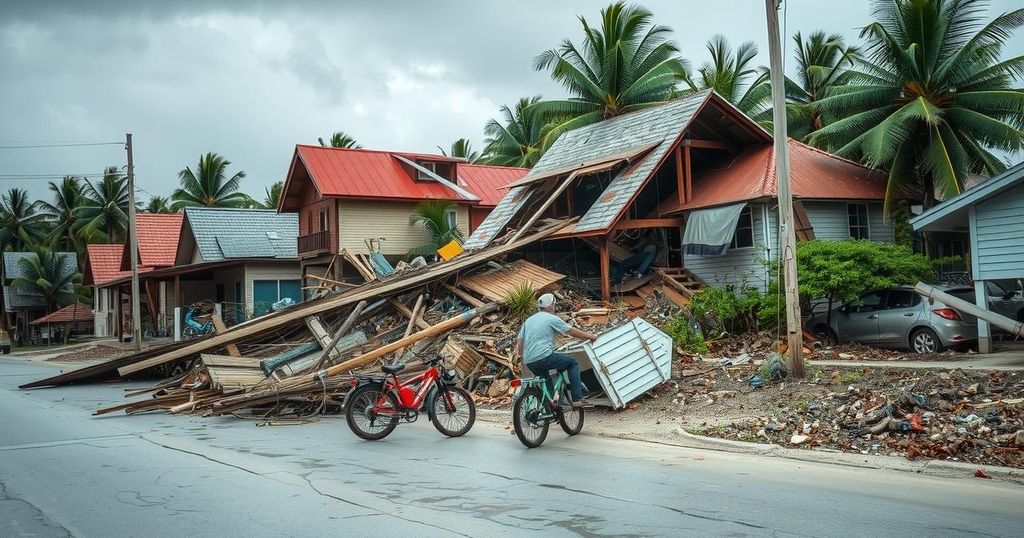Cyclone Chido struck Mayotte on December 14, causing extensive destruction, with reports of fatalities and significant damage to neighborhoods. Local authorities continue to assess the impacts as strong winds and rainfall persist, raising concerns about further casualties and the need for emergency response.
Cyclone Chido has caused significant devastation throughout the archipelago of Mayotte, particularly on the Grande-Terre island. On the morning of Saturday, December 14, the cyclone’s eye passed directly over the region, resulting in widespread destruction. Mayor Ambdilwahedou Soumaila reported that two individuals lost their lives in the shantytown of Kawéni after being struck by falling furniture in their makeshift residences. Local authorities are apprehensive that the death toll may be even greater than currently known.
In a press release, Mayotte Prefect François-Xavier Bieuville highlighted the severity of the situation, stating, “Many Mahorais have lost everything” and confirmed that the red alert would remain in effect due to predictions of continued heavy rainfall and strong winds. He further remarked that entire neighborhoods had been obliterated, rendering it impossible to accurately quantify the number of injuries or fatalities at this time.
Mayor Soumaila noted that shantytowns in Mamoudzou were “swept away like crumbs,” illustrating the magnitude of the disaster. In this economically challenged department, roughly one-third of the population resides in tin huts. The cyclone produced wind gusts exceeding 220 km/h, resulting in the loss of roofs and shattering windows in numerous concrete structures. Additionally, countless trees were uprooted, significantly impacting transportation routes across the region.
Cyclone Chido represents a significant meteorological event impacting Mayotte, an archipelago situated in the Indian Ocean. This area of France is known for its economic adversity, with many residents living in precarious housing conditions, such as tin huts. The cyclone’s intensity, characterized by exceptionally high wind speeds and consequential damage, has raised concerns regarding human casualties and infrastructure loss. The ongoing situation underscores the vulnerability of Mayotte’s population to natural disasters, drawing attention to the need for emergency preparedness and robust disaster response strategies.
In summary, Cyclone Chido has inflicted extensive damage on Mayotte, with significant loss of life and destruction of homes and neighborhoods. The dire situation highlights the urgent need for continued vigilance and support from local authorities as they assess the full extent of the damages and begin recovery efforts. The potential for a higher human toll underscores the importance of emergency services and preparedness in mitigating the effects of such natural disasters.
Original Source: www.lemonde.fr






